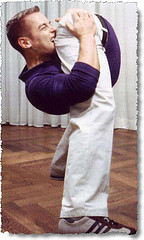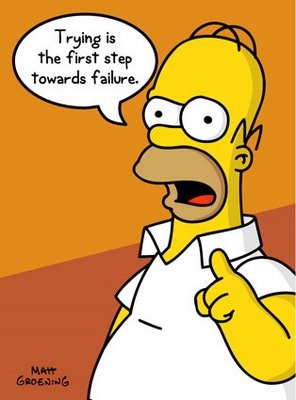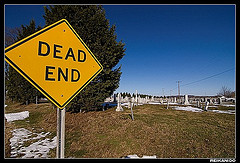Considered working as a Software Analyst? This interview will take you through the ups and downs you can expect in the position, what it takes to land the job, what you can expect to earn and more.
This is a true career story as told to LatPro.com for its ‘What They Don’t Teach’ series ñ a collection of interviews with Hispanic and bilingual professionals from a Division Leader to an Insurance Agent, and everything in between.
I’m officially titled a software analyst and have almost exactly four years of experience in the field. The daily duties involved in this field are wide-ranging and depend a lot on what type of software a company is producing. The company I work for produces a completely integrated software package for retail businesses. The software is made to be used in every part of the business without having to buy a separate software package for any other needs, so it is composed of modules that work together in different departments. Cashiers and salespeople ring up sales through the software. Warehouses use it for inventory. Bookkeepers use the software for accounting and even for payroll.
As a software analyst, I wear many hats. One might think this position is technical, but as long as one is savvy with operating computers and running software, programming and the real technical details aren’t important. Someone in another department handles those issues.
I have three main responsibilities as a software analyst: testing software, helping clients who experience problems with the software and training clients to use the software. I’m what is known as a traveling software analyst. This means I get sent out to clients’ locations across the country to train them at their location. The companies that purchase our software pay my airfare, hotel fare, transportation expenses and meal expenses while I’m training them.
When I’m not out “on the road”, which is misnomer because 95 percent of the time I fly, I work from a cubicle in an office building. When I’m at my desk, my time is usually split between several tasks. When clients call in, we software analysts act as customer support representatives. We answer questions and help clients when they are experiencing a problem. This may take up to 50 percent of my day in the office, depending on the complexity and nature of the calls.
When not on calls, my time in the office is spent testing new applications for our software. Our software is continuously being upgraded, therefoe I test it to make sure it’s ready to be released. If I find a bug or think that something cand be improved, it is my duty to take the issue to the programmers/coders. I also spend time taking in-house classes to learn about new software applications. A lot of self-learning is also required. Remember, I have to be able to know the software inside and out so I can answer any questions a client may have.
When I go out on the road, it is primarily for the purpose of installing the software for new clients and training how it is used. This usually takes 14 days split up into three trips. The first two trips are for five days each, and the third is for three to four days. However, if the company is very large or complex, a single trip can last for up to 10 days.
I’m Caucasian, but have an Hispanic background. Most people take me for white, but often they think I’m from Europe or a Latin American country because I have a peculiar individual accent. The funny thing, though, is that when I’m in the southwest or other areas with a large Hispanic population, they ask if I’m Canadian. Iíve never had any kind of problems due to my ethnicity or any of my other physical traits.
I usually speak English, but I also can handle a simple conversation in Russian. So far, this has neither helped nor hindered me in my job. Everywhere I go, English is understood.
I’m quite satisfied with my job therefore I’d say that on a scale of one to ten, my satisfaction scores a seven. This might sound a little harsh, but to be honest, this is not my dream job, and I think every job has some aspects that are not liked but simply have to be dealt with.
One thing I donít like and had to learn to stay out of the hard way was getting involved in office politics. When I was training, I would get sent out on trips with a senior analyst to show me the ropes. It turns out this analyst was one of the people with the highest seniority in the company. However, our director was not as senior as she, and they were often at odds. I soon found out that each of them was using me to spy on the other when they were away from each other. I avoid the situation just by giving them answers that indicate everything is well, without being specific or tattling.
Gaining experience for this job started in school, but school did little to teach me about the reality of how businesses operate in the field. I gained most of this experience in years past as a retail manager. I was previously the manager of a large convenience store and restaurant.
I got started in this business because I was looking to get out of retail. I didnít really want to be responsible for employees any longer. I ran a computer repair and software installation company on the side, and the two meshed perfectly together to get me in as a retail software analyst. If I had to change something about the process, it would be to have started it much sooner, before I really got tired of management.
Not a lot of strange incidents occur at this job. The strangest have to do with travelling. Once I was on a trip during the summer and the airline lost my bag. I had to drive to another city in a rental car from the airport. The airline said they found my bag, but then the delivery company bringing it to my hotel lost it. I didnít get it until the day I was meant to go home. I had to work the first day in shorts and a tank top when I usually wear a pressed shirt and tie. I wore the same typoe fo clothes the next day because I was told I would have my bag by then. The third day I had to buy all new clothes to get me through the rest of the trip.
This job is very satisfying on good days. When you solve a clientís problem, they can be extremely gracious. I have had clients write to the president of the company to say what a good job I did in their critical situation. Because the software is so crucial to business, if it is not working as they expect it should, it can mean lost profits and angry customers.
Some days nothing seems to go right, but the best part of my job is that ultimately it is not my responsibility. My whole job is about snafus and solving problems and I’m not expected to know everything. If it gets out-of-hand I have steps to take to bring in some support. The worst, though, is when the programmers have deadlines to meet, and they are too busy to lend a helping hand in explaining how an application works.
Some people find this job stressful, but I donít. I think it is mostly due to my personality type and belief that a state of calm solves problems than a state of panic. However, it can be stressful being away from home for so long. I end up missing my family and my own bed after a few days. If problems arise at home, I have to solve them over the phone or the Internet.
I make roughly $40,000 annually, but my true salary is only $28,000. The rest is bonuses I receive from being out on the road. Software analysts that donít travel start at about $22,000.
I’ve had a lot of rewarding experiences, but the most rewarding experience was in Washington. My client there was really gracious, and we went out to lunch a few times. She offered me a spare room to stay in should I ever travel that way outside of work.
The most challenging moments of my job are when I travel. Meeting all new people and learning how best to work with them is difficult. Then, after a week or more of working together, you feel like part of the family or team, but you must say goodbye and go back home. Itís really a dichotomy of emotions in a short period.
To be a software analyst usually requires a college degree. However, I had years of experience in management and, on top of that, years of experience with computers. It is better to have some previous experience with what the software is made for.
If a friend were considering becoming a software analyst, I would say to go for it. It is rewarding and challenging.
I receive two weeks paid vacation time a year. However, when I travel I get to take extra days off depending on how long I am out on the road. So, some weeks when I am scheduled to be in the office, I get to take plenty of time off.
The biggest misunderstanding most people have of software analysts is that you have to have a lot of technical know-how and understand programming languages. This is not always the case. Sometimes you just have to understand the field for which the software is made.
I canít say that this job moves me or touches me in any particular way. I love travelling, but I think of it simply as a way to make sure money while I work on writing a novel.
Iím not sure if I plan on doing this five years from now. Itís good work, but there is a ceiling that I am quickly approaching. After so long, there are no longer any promotional possibilities. With any luck, I will be a full-time writer five years from now.
Anyone interested in becoming a software analyst should know it is not always easy work and the pay is not always commensurate. I am in my thirties and have a lot of work experience behind me that makes my job a lot easier than it is for younger people just starting out.
| Be sure to look for us on your favorite networks: |
|---|
 |
 |
|---|
| Visit Our Bookstore for Great Values! |
|---|
 101 Tips Every Job Seeker Should Know |
 The Ultimate Online Job Seekers eBook |
 10 Biggest Interview Mistakes |
 10 Biggest Resume Mistakes |
|---|
| Check out these hot articles! |
|---|






![Higher Learning Leads to Higher Earnings, Especially for Men [InfoGraphic] Higher Learning Leads to Higher Earnings, Especially for Men [InfoGraphic]](../4022/4340939642_374fbff6e3_m.jpg)








